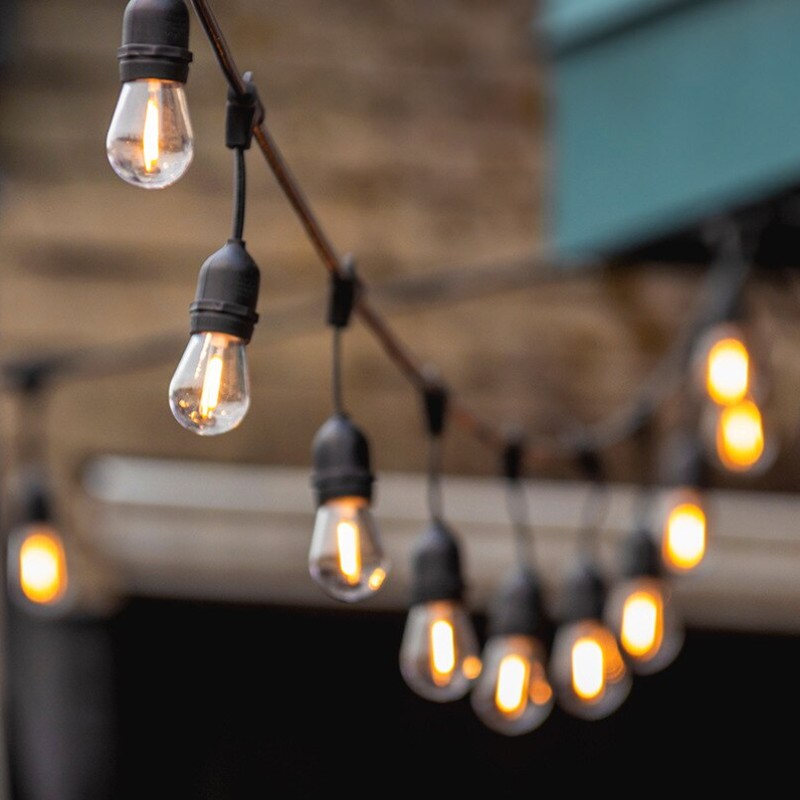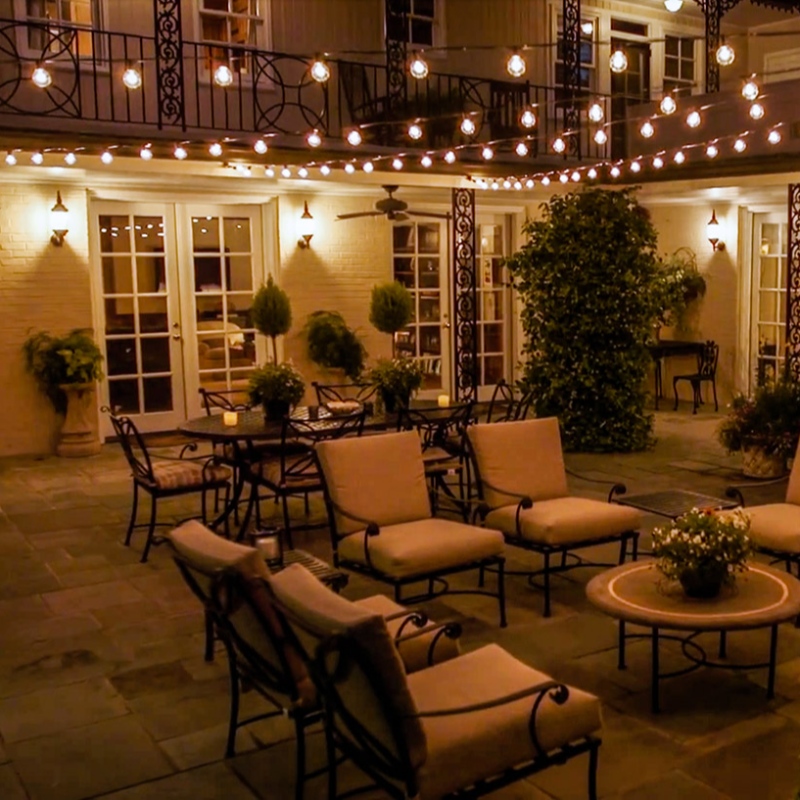Hanging solar lights are bright, energy-efficient, and make great additions to any front porch or garden area in the evening time. They also happen to be easy to install, so most people can do it without hiring someone else to do it for them. If you’re looking into using hanging solar lights in your own yard or garden, here are 10 tips to keep in mind as you go about putting them up!
What Are Solar Lights?
Solar lights are awesome! They’re great because they give off a little light while saving you money on electricity. However, they can be tough to install and even tougher to keep looking nice. In order to have solar lights that will last more than one season, here are ten tips that’ll help you make sure your installation is top-notch and your lights stay bright and beautiful for years to come.

How Do They Work?
The best way to understand how solar lights work is to think of them as very simple solar panels. The catch, however, is that instead of producing electricity, these devices convert sunlight into photons that create light. Some models of solar lights use bulbs with a phosphorescent coating, which can store energy even when it's not directly exposed to sunlight (like on cloudy days). These kinds are great in front gardens or near walkways and paths at night. Of course, if you're looking for something brighter or want your lights to illuminate an area even after sundown --you should probably opt for ones with traditional bulbs or LEDs.
Where Can I Put Them?
Most solar lights are light and water-resistant, but it's still a good idea to consult with an electrical expert before attaching them to your home. Solar lights work best in shaded areas; avoid installing them in direct sunlight and rain showers. A few hours of indirect sunlight will give your solar light plenty of power during nighttime hours, so don't be afraid to put yours in a sunny area that gets shade by day. Lastly, most solar lights have stakes on their backsides--don't forget to plant these into soil or flower beds before hanging!
Will They Work in Any Weather?
When shopping around for solar lights, you’ll quickly learn that different companies have varying levels of confidence when it comes to a solar-powered lighting system’s ability to function in any weather. Some companies are more confident than others.
Before purchasing your first solar light set, make sure you’ve read through customer reviews from customers who’ve used these products in inclement weather conditions so you know what to expect and whether or not to proceed with your purchase.
How Long Does it Take to Charge them?
The great thing about solar lights is that they are practically maintenance-free. In fact, they can provide years of light without ever charging them! When you do charge them, it takes only a few hours in direct sunlight to get a good charge. (Typically between three and eight hours.)
On average, a fully charged set of solar lights will stay lit for about six hours per night. This means if your lights come on at dusk and go off at midnight, then you needn’t worry about recharging them again until 6:00 pm. So when planning out your string of outdoor Christmas decorations, keep in mind that you’ll need to put them up before November 15th in order to be able to leave them up all season long!
How Many Do I Need?
The first thing you need to determine is how many solar lights you need. The number of lights you need to buy depends on three things: How many hours of sunlight your area gets each day, how much area your lights will illuminate, and what type of lighting effects you're trying to achieve. By doing a little research, you can determine an estimate. If it helps, look at old pictures from when your home was being built; these may show existing light fixtures or outdoor structures that would give you an idea of where solar lights are needed most.
When Can I Expect Them to Last?
Because solar lights charge during daylight hours, you won't be able to use them at night or on cloudy days. If it's overcast, expect your solar lights to function at 50% brightness; if they're being charged in daytime hours but there's still a lot of cloud cover, they might not turn on at all. Additionally, your solar lights should continue to work until temperatures drop below freezing (32 degrees F), and their lifespan will depend entirely on how often you leave them on during cloudy days: The more often you turn them off due to weather conditions, the sooner they'll expire.
Are They Worth the Cost?
The initial cost of purchasing solar lights can be expensive but think about it like a light bulb that never has to be replaced. The best way to save energy is to purchase a programmable thermostat. Plus, in most cases, you can find rebates and tax incentives to offset your investment costs. Once you get them set up and running, your yard will seem illuminated from within. They're sure to make any outdoor event more festive! Now that you know if they're worth it or not, let's talk placement. Here are our top ten tips to ensure you can see well once night falls.
Is There a Way to Tell If They are Working Properly on My Lawn/Patio/Walkway/Garden?
With these outdoor solar lights, you can tell if they are working properly by their brightness. You should be able to see them glow even at night or in dimly lit areas. If you have difficulty seeing your solar light, it is time to change out batteries. To save yourself from having to frequently replace batteries on your solar lights, invest in some rechargeable batteries that you can buy at any local hardware store. Just keep in mind that although rechargeable batteries will save you money in the long run, they do take a bit longer to charge than regular ones and don't last as long either.


